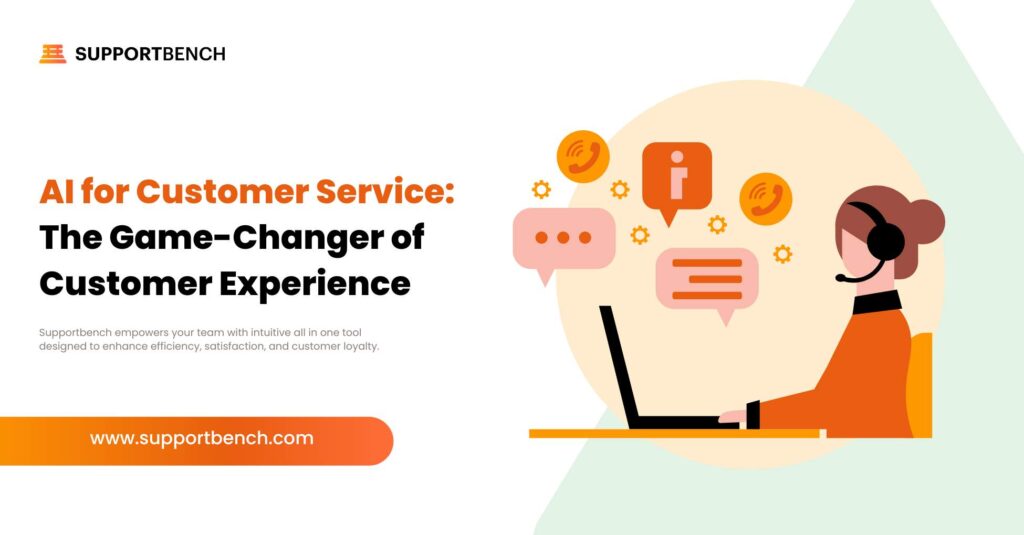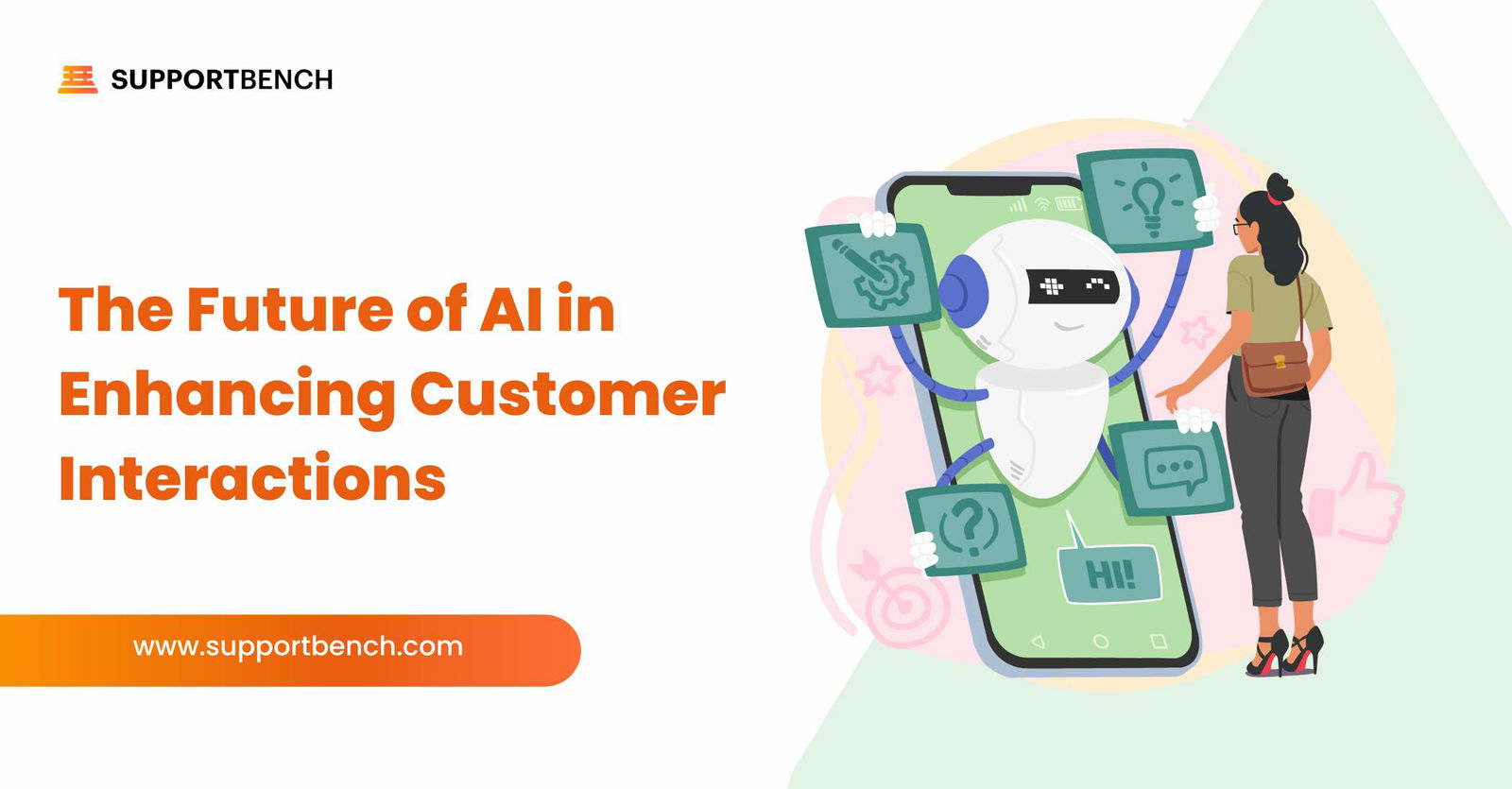The role of AI in customer service is expanding rapidly, reshaping how organizations connect with their customers. “AI for customer service” is not just a buzzword anymore; it’s a fundamental shift in how companies operate, ensuring higher efficiency, enhanced customer satisfaction, and personalized experiences. Brands that once managed customer relationships through traditional channels are now embracing AI to transform service interactions. It’s no longer about replacing humans but rather augmenting their capabilities to create extraordinary customer experiences.
According to a 2023 Gartner report, 85% of customer interactions are expected to be managed without human agents by 2025, highlighting the growing importance of AI in customer service.
In recent years, we’ve seen several industries adopt AI-powered customer service tools, from chatbots that answer basic queries to sophisticated AI systems analyzing sentiments in customer conversations. Companies such as Amazon, Starbucks, and even legacy manufacturing firms have realized the value of AI, leveraging it not just to respond to inquiries but to anticipate customer needs. Let’s explore how AI for customer service is evolving and what organizations can do to take advantage of its full potential.
Enhancing Efficiency and Speed with AI
One of the biggest strengths of AI in customer service is its ability to improve efficiency and speed. AI-powered chatbots and virtual assistants can handle repetitive questions instantly, freeing human agents to tackle more complex problems. This automation reduces waiting times, leading to more satisfied customers and a higher Net Promoter Score (NPS).
For instance, in logistics, AI has revolutionized how customers track shipments. Imagine a customer needing to know where their package is—in the past, they would call customer service, get placed on hold, and wait for an agent. Now, AI can instantly provide real-time tracking information, predict delays, and notify the customer automatically, saving time for both the customer and the company.
- AI Chatbots for Routine Queries: AI chatbots can manage repetitive inquiries, such as tracking orders or booking services. Companies can deploy bots to handle after-hours inquiries, ensuring 24/7 support. A practical way to enhance this feature is by training chatbots with specific company data, increasing their accuracy and making them an extension of the brand.
- Virtual Assistants for Efficiency: Use virtual assistants to help human agents with data. For instance, while an agent talks to a customer, AI can pull up the customer’s profile, suggest relevant solutions, and make the conversation smoother. This results in faster resolution and more accurate responses.

Personalization at Scale
AI takes personalization to new levels by analyzing past customer behavior, preferences, and interactions. Personalized customer service isn’t about remembering a name; it’s about understanding what makes each customer unique and tailoring the experience accordingly. AI can do this in real-time and at scale, something that’s almost impossible for humans alone. According to Accenture, 91% of consumers are more likely to shop with brands that provide relevant offers and recommendations, showcasing the impact of AI-driven personalization.
Consider the way streaming services like Netflix leverage AI. They analyze user behavior—what a user watches, how long they watch, and what they skip—to recommend content they’re most likely to enjoy. The same principle applies in customer service. AI can identify what each customer needs and guide them to the solution without unnecessary interactions, making them feel valued and heard.
- Behavior Analysis for Insights: Use AI to analyze customer actions and develop insights. This could mean learning from repeated queries to identify friction points in the customer journey. Regular reviews of these insights can lead to targeted improvements.
- Customer Journey Mapping: AI tools can predict a customer’s next step and guide support teams to provide proactive solutions. For instance, if a customer frequently reaches out about billing, AI can preemptively share a simplified billing guide or notify the customer of upcoming payment deadlines.
Predictive Customer Service
The future of customer service is predictive rather than reactive. Predictive AI can foresee when a customer is likely to encounter an issue before it becomes a problem. Using machine learning models that analyze usage patterns, companies can identify potential pain points in advance, helping avoid a surge in service requests.
According to a 2024 Deloitte report, companies using predictive AI saw a 25% reduction in customer complaints and a 30% improvement in overall customer satisfaction.
A great example is predictive maintenance used by utility companies. AI can detect anomalies in power usage, predict equipment failure, and prompt customer service to notify impacted customers. This not only prevents outages but also enhances the customer’s perception of reliability.
- Monitoring Behavior for Early Intervention: Set up AI to monitor user interactions and highlight anomalies. For instance, AI can detect when a customer’s activity drops significantly—which may be a sign of dissatisfaction. Support teams can then proactively reach out to offer help or discounts.
- Product Support Alerts: Predictive models can send alerts for equipment or product failures before the customer even realizes there’s an issue. By integrating AI with IoT, companies can automate troubleshooting, reducing downtime.

Augmented Agent Support
AI is not here to replace customer service agents; it’s here to empower them. Augmented intelligence can help human agents provide better support by offering contextually relevant information in real-time. AI systems can scan thousands of customer records in a moment and provide suggested resolutions or necessary data to assist an agent during a call. According to Salesforce, 63% of agents say AI has improved their ability to provide timely information to customers, demonstrating the real-world impact of AI on enhancing agent performance.
This is particularly important in industries with long-term customer relationships like healthcare or financial services. Agents are not always privy to every previous conversation or document. AI tools can summarize previous interactions, provide key details, and suggest personalized solutions to improve customer outcomes.
- Instant Summaries for Agents: AI can summarize previous conversations, creating a quick reference for agents before they jump into a call. Encouraging agents to review these AI-provided summaries can reduce call times and eliminate repetitive questions.
- Knowledge Base Integration: Integrate AI with internal knowledge bases to provide agents with the most relevant articles or troubleshooting guides. A practical step is to continuously train the AI on new problems, which will increase its usefulness over time.
AI Limitations and Considerations
As with any technology, AI for customer service has its limitations. Customers still crave human empathy, especially when dealing with sensitive issues. There are cases where a human touch is irreplaceable—think about conflict resolution or emotionally charged customer complaints.
One limitation is AI’s dependency on quality data. Poor-quality input results in poor-quality service. If the AI isn’t trained properly or doesn’t have the necessary data, the customer experience can degrade quickly. It’s important for companies to view AI as a tool that supports, rather than completely replaces, human agents.
- Empathy is Key: Train agents to know when to take over from AI, ensuring a human is present when empathy is required. AI can alert an agent to step in when it senses escalating frustration from the customer’s language or behavior.
- Quality Data Training: Companies should continuously refine AI by feeding it quality data. For instance, customer satisfaction ratings on AI responses can help identify where the AI could improve.

How Supportbench Enhances Customer Relations
Supportbench takes a comprehensive approach to customer relations, particularly in environments where maintaining long-term relationships is critical. With AI embedded in every module, Supportbench provides a seamless experience across all aspects of customer support, from case management to knowledge base integration.
Supportbench’s AI features like predictive analytics, sentiment analysis, and intelligent routing mean that companies can proactively address issues before they escalate. The AI doesn’t just enhance service response times; it elevates the quality of interaction by offering tailored solutions, ensuring that customers always feel valued and understood. By automating the routine and empowering agents with actionable insights, Supportbench fosters stronger relationships and improved loyalty.
Conclusion
AI for customer service is not just a technological trend; it is a transformative force that redefines how companies engage with their customers. By enhancing efficiency, personalizing interactions at scale, predicting issues before they occur, and augmenting human agents, AI delivers significant value across all customer service touchpoints. The future of customer service lies in the balance between intelligent automation and human empathy, ensuring that customers receive both the efficiency of AI and the emotional connection of human agents.
Companies that leverage AI effectively will not only streamline their support operations but also create lasting customer loyalty. Supportbench exemplifies how a customer service platform can integrate AI seamlessly, empowering teams to provide proactive, personalized, and effective support. As AI continues to evolve, embracing these innovations will be crucial for businesses looking to stay competitive and deliver superior customer experiences.












